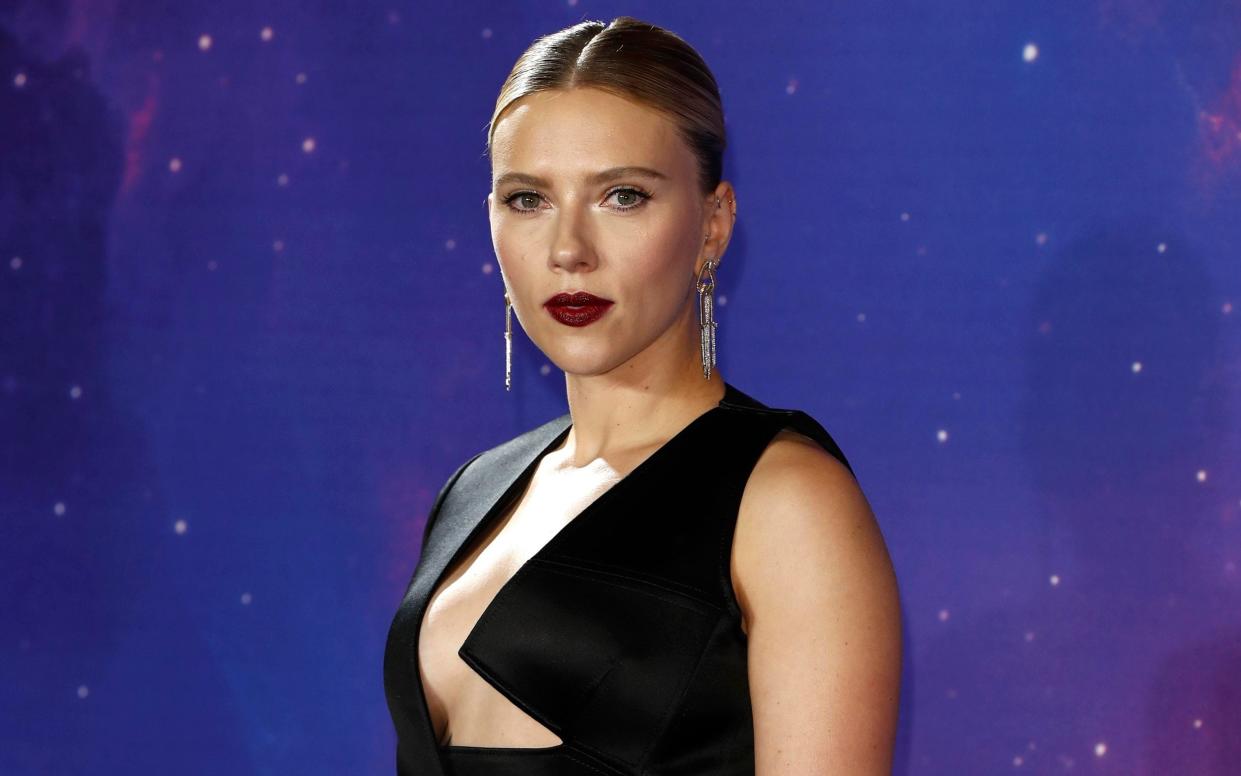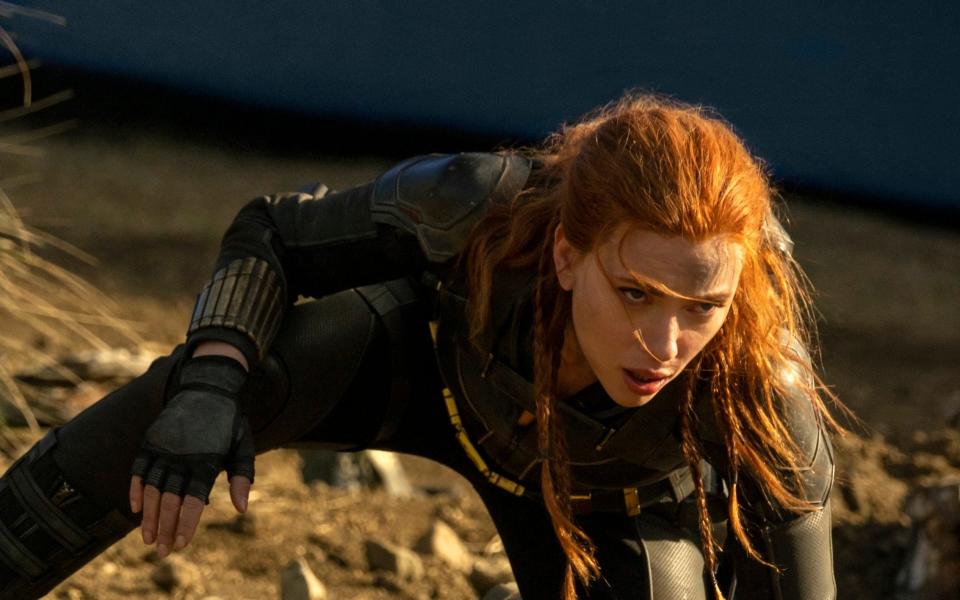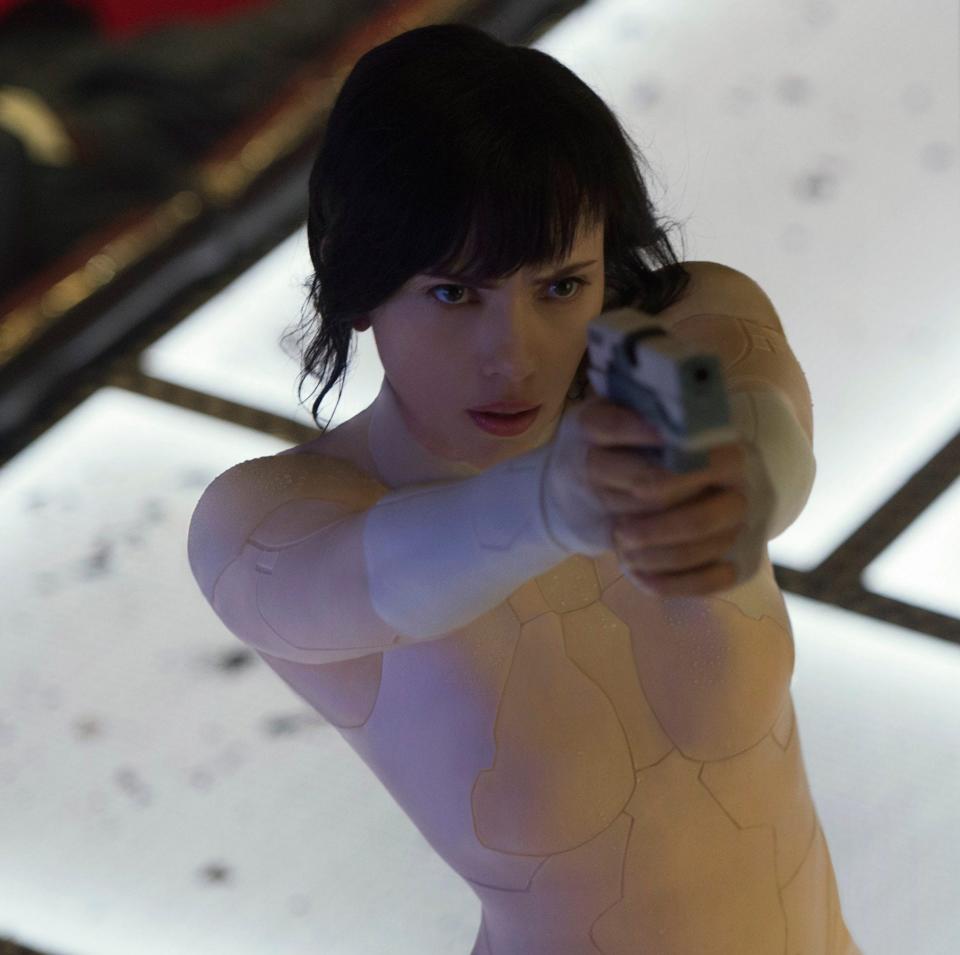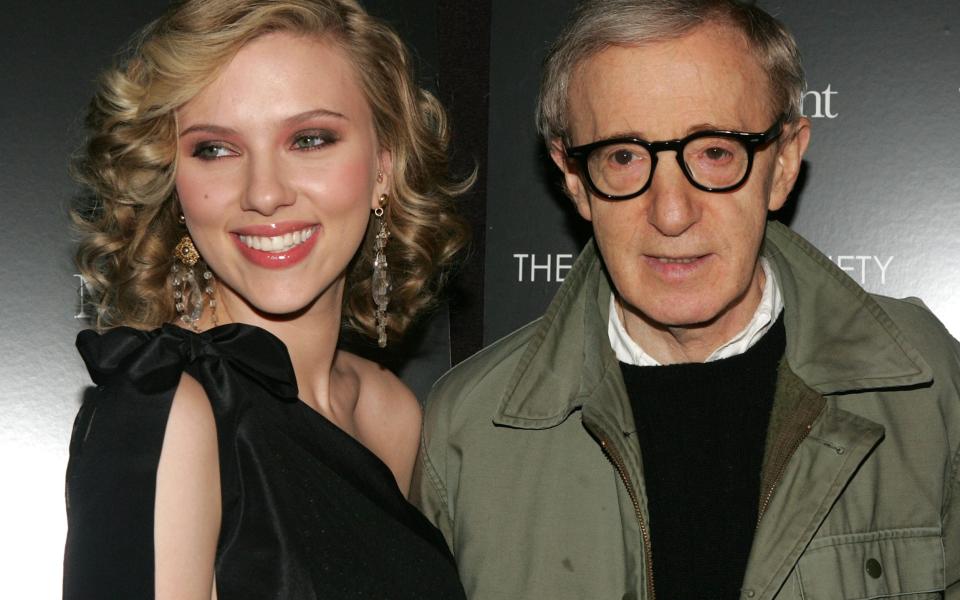Why Scarlett Johansson is the most fearless woman in Hollywood

- Oops!Something went wrong.Please try again later.
- Oops!Something went wrong.Please try again later.
Her: a simple three-letter word has rarely said so much. It was what the OpenAI CEO Sam Altman wrote on the social media platform X on the day his company’s brand new chatbot voice was released. He included no context and no punctuation; not even a capital H.
But the post was widely taken to be a reference to the Oscar-winning 2013 science-fiction drama of the same name, about a man who falls in love with an artificial-intelligence programme. And in the film, that programme’s voice – warm, husky, comforting, flirtatious – was provided by Scarlett Johansson.
And come to think of it, didn’t OpenAI’s new chatbot, whose name was Sky, sound a lot like Johansson too? This turned out to be far from a coincidence. In a statement released yesterday, the 39-year-old actress revealed that Altman had contacted her last September with an offer to voice his forthcoming ChatGPT 4.0 system. Johansson declined.
“Nine months later, my friends, family and the general public all noted how much the newest system named ‘Sky’ sounded like me,” she said. “When I heard the released demo, I was shocked, angered and in disbelief that Mr Altman would pursue a voice that sounded so eerily similar to mine that my closest friends and news outlets could not tell the difference.”
Why does chatgpt sound like Scarlett Johansson??? https://t.co/YbWB5MyydF
— James𓃵 (@EdgalJ) November 22, 2023
OpenAI responded with a statement of their own, in which they claimed Sky’s voice was not an “imitation” of Johansson’s, but had been performed by another actress (who, due to privacy concerns, could not be named). but it’s hard to reconcile that with Altman’s post on X, which takes on a horribly violative quality in light of his earlier actions.
He heard Johansson’s voice and wanted it. She said no; he took it regardless. What he evidently didn’t realise – and would have, if he’d paid the slightest attention to her career – is that she is not a woman with a history of rolling over and accepting her fate.
For all the film industry’s talk of strong and independent female role models, Johansson is one of its few A-list members to actually live out those values – with no fear of how it might play with executives, or internet scolds, or tech moguls whose understanding of consent leaves much to be desired.
When she broke through in 2003’s Lost in Translation, one of her most striking qualities was her Old-Hollywood aura. She was the sort of star you could imagine swapping cigarette smoke with Humphrey Bogart, or ruining Alan Ladd’s life with a loaded look over a martini glass. Yet that quiet formidability that made her so magnetic on screen turned out to extend off it, too. Over the next 21 years, she’d regularly show she had the spine of Bette Davis, and more balls than the entire male Olympic athletics troupe in Gentlemen Prefer Blondes.

Take her spat with Marvel in 2021, at a time when the superhero studio was still the dominant power in the blockbuster field. After years of supporting appearances in the Avengers films, Johansson’s Black Widow character was finally given a spin-off of her own.
The film was shot before covid, but after the pandemic, Marvel’s parent company Disney announced it would be released simultaneously in cinemas and on the Disney+ streaming platform – rather than starting with a (contractually promised) exclusive theatrical run, where stars’ performance-related bonuses are accrued.
Many actors would have taken the hit, conscious of the steady stream of employment and broadened fanbases a franchise can provide. But Johansson sued, saying the decision had deprived her of potential earnings. At first, the studio fought back.

“The lawsuit is especially sad and distressing in its callous disregard for the horrific and prolonged global effects of the Covid-19 pandemic,” Disney said in a statement, which also ungraciously made a point of mentioning Johansson’s $20 million Marvel salary. (The implication presumably being: how much more can she possibly need?)
Yet two months later, the studio settled. The terms of the agreement were never publicly disclosed, though a report in the industry publication Deadline at the time said that Johansson had received more than $40 million to avoid a showdown in court.
And was she destined to languish on the studio’s do-not-employ list as a result? Not quite. It was reported last week that Marvel had brought her back into the fold to develop and potentially star in The Blonde Phantom, a series based on a 1940s crime-fighting femme fatale, for Disney+.
So studios can’t bring themselves to cancel her. And the internet, try as it might, can’t quite seem to manage either. When Hollywood turned on Woody Allen in 2017, following a renewed accusation of historical abuse by his adopted daughter Dylan Farrow, Johansson was one of the few actors to stand by the beleaguered director, with whom she’d made three films.

“I love Woody. I believe him, and I would work with him any time,” she told the Hollywood Reporter – adding that the ostracising of Allen had come at “a time where people are very fired up, and understandably,” due to the wider context of the #MeToo movement. After Farrow first made her allegation in the 1990s, against the backdrop of a bitter family feud, Allen was investigated twice, by the Child Sexual Abuse Clinic of Yale-New Haven Hospital and New York City’s child welfare administration, who both concluded that no sexual abuse had occurred.
But in the fractious climate of the late 2010s, for a popular actress to suggest that not every claim which had attached itself to the #MeToo brand might necessarily have merit, took serious integrity and nerve. Of course, social media flew into an uproar. But as Johansson later told Vanity Fair: “I think it’s dangerous to temper how you represent yourself, because you’re afraid of that kind of response. That, to me, doesn’t seem very progressive at all. That seems scary.”
But Twitter (as it was then called) had already marked Johansson’s card. Her casting in the lead role in the 2017 blockbuster Ghost in the Shell was met with accusations of ‘whitewashing’, since the animation from which the film had been adapted was Japanese. The director of the 1995 original, Mamoru Oshii, dismissed the outrage: “I can only sense a political motive from the people opposing it, and I believe artistic expression must be free from politics,” he said, adding that since Johansson’s character was a cyborg, she therefore didn’t have a race. But this failed to assuage tweeters, around 104,000 of whom signed a petition – which was ultimately ignored – to have the role recast.
Perhaps that partly explains the strength of the backlash when it was announced the following year that Johansson had been cast in the true-life crime drama Rub & Tug as the transgender gangster and pimp Dante ‘Tex’ Gill. Her initial response to that outcry was typically punchy – naming three other actors, Jeffrey Tambor, Jared Leto and Felicity Huffman, who had all recently played transgender characters to widespread acclaim. But later, having described her initial reaction as “misjudged,” she left the project and went off to shoot Jojo Rabbit, for which she was nominated for an Academy Award.
What became of Rub & Tug without her? It promptly collapsed – and, while in 2020 it was said the film was being reworked as a television series with a transgender lead, since then there has been no further news. Fair or not, incidents like this only demonstrate Johansson’s value as a performer, and that her presence – be it physical or vocal – is an asset that’s not easily replaced. Even an AI chatbot could tell you she wouldn’t take kindly to it being stolen, though from now on it’ll be doing so in less recognisable tones.


